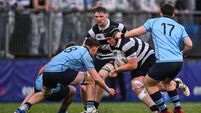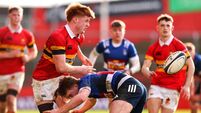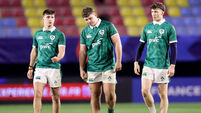Proud Biarritz Basqueing in the passion of patriotism
Hypotheses as to their origins range from the lost tribe of Atlantis to a single mythical survivor of the great flood. As people they have more rhesus negative blood than any other racial group in the world. Their tricky language — euskera — is unrelated to any other European tongue.
They’re as singular when it comes to sport. They gave the world Miguel Indurain and Bixente Lixaraxu, they invented pelota and exported it to America as jai alai, but they’ve also got other indigenous games — the herri kilorak, or rural sports. These include wood chopping contests, sprint races with a 200lb weight on one’s back, throwing hay bales over a high rope, and the daddy of them all: harrijasotzaile, or stone-lifting.















